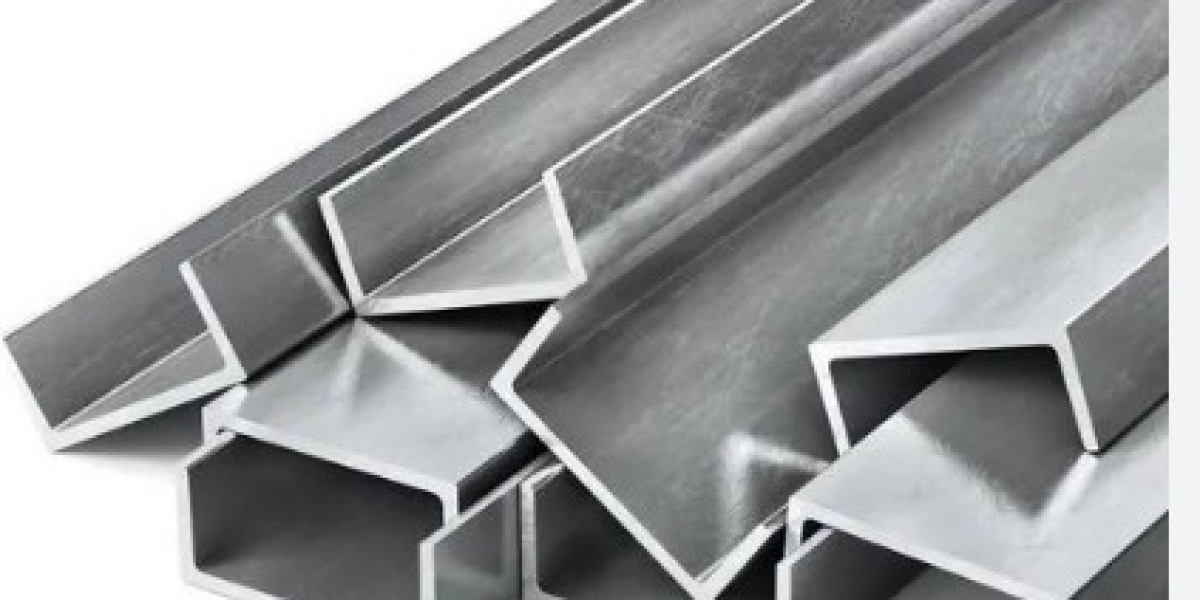Mild steel angle is a crucial component in the construction industry, used in a variety of structural applications. Known for their versatility, durability, and cost-effectiveness, mild steel angles are widely utilized in building, infrastructure, and engineering projects. This article delves into the significance of mild steel angles in construction, their types, uses, and why they are indispensable in modern construction practices.
Uses of Mild Steel Angles in Construction
Structural Framework
Mild steel angles play a vital role in the construction of frameworks for buildings and other structures. They are commonly used for supporting beams, columns, and walls, providing stability to the entire structure. Their strength and flexibility make them ideal for constructing load-bearing frames, especially in large-scale commercial and industrial buildings.
Bracing and Reinforcement
In construction, structural components must often be braced to resist lateral forces such as wind, earthquakes, and vibrations. Mild steel angles are widely used for bracing systems, which provide the necessary strength to prevent any deformation or collapse. The steel angles are installed diagonally or horizontally across frames, ensuring the structure remains strong and stable.
Supports for Equipment
Mild steel angles are also used to create supports for heavy machinery and equipment, ensuring they are securely held in place. In warehouses, factories, and industrial plants, mild steel angles are often used to build frames for storage racks and shelving systems, maximizing the use of space.
Fencing and Safety Barriers
In construction sites and industrial zones, mild steel angles are often used in fencing and barrier systems. Their robust nature ensures that they can withstand external pressures while providing safety and security. Additionally, mild steel angles are used in guardrails, creating safe walkways and preventing accidents on construction sites.
Architectural Features
Beyond functional uses, mild steel angles are sometimes employed in the creation of aesthetic architectural features. Their versatility in design allows architects to incorporate them in both modern and traditional structures. Mild steel angles are often used for creating frames for windows, doors, and roofing systems, adding both structural integrity and aesthetic appeal.
Importance of Mild Steel Angles in Construction
Strength and Durability
Mild steel is known for its remarkable strength, especially in comparison to other materials used in construction. Steel angles, due to their L-shaped design, provide excellent resistance to both compression and tension, ensuring that the structure can handle significant loads. This strength makes them ideal for use in buildings, bridges, towers, and other infrastructure projects that require heavy-duty support.
Cost-Effectiveness
One of the primary reasons mild steel angles are favored in construction is their affordability. They are relatively inexpensive compared to other structural materials like stainless steel or aluminum, making them a cost-effective choice for large-scale construction projects. Builders and contractors can thus use mild steel angles without exceeding their budget, while still ensuring the quality and safety of the project.
Ease of Fabrication
Mild steel angles are easy to fabricate and customize according to specific project requirements. They can be cut, welded, and drilled without compromising their structural integrity. This flexibility makes them suitable for both large-scale and small-scale construction projects, providing the necessary support without complex fabrication processes.
Corrosion Resistance
While mild steel is not entirely resistant to corrosion, it can be treated with coatings or painted to protect it from the elements. This makes it suitable for use in outdoor construction projects or in environments where exposure to moisture and weathering is a concern. Mild steel angles with proper coatings can withstand corrosion for many years, enhancing their longevity and reliability.
Versatility
The design of mild steel angles makes them incredibly versatile. They can be used in a wide range of construction applications, from structural reinforcement to aesthetic details. Whether for residential buildings, commercial structures, or large infrastructure projects like bridges and highways, mild steel angles offer the flexibility to meet the demands of different types of construction.
Conclusion
Mild steel angles are a vital material in the construction industry, offering a combination of strength, durability, and cost-effectiveness. Their ability to withstand heavy loads, resist deformation, and provide versatile solutions for framing, bracing, and reinforcement makes them indispensable in modern construction practices. Whether for structural frameworks, equipment supports, or safety barriers, mild steel angles play a significant role in ensuring the stability and longevity of buildings and infrastructure.
If you are looking for best quality i beams, please visit our website : www.steeloncall.com or you can contact us through our toll-free number: 18008332929
#MildSteelAngles #SteelInConstruction #ConstructionMaterials #SteelBars #AngleBars







